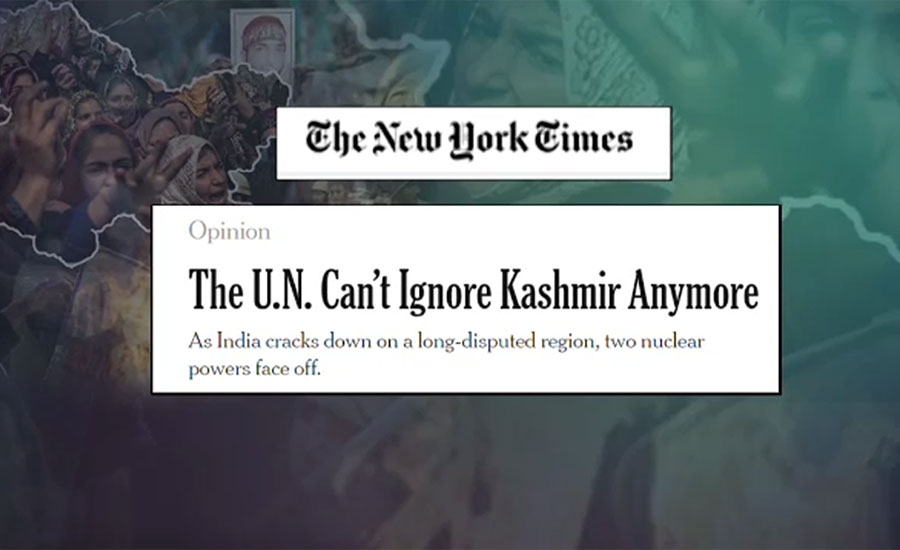UN can’t ignore Kashmir issue anymore: US newspaper

NEW YORK (92 News) – American newspaper – in its editorial – lamented on keeping silence on the Kashmir issue and human rights violation by Indian occupied forces in occupied valley, it said that United Nations (UN) cannot ignore Kashmir anymore.
According to the New York Times, Prime Minister Imran Khan, was a man on a mission at the UN, imploring members last week to persuade India to lift its siege of Kashmir, a longtime flash point between the two nations, which both have nuclear weapons.
Failure to do so, he warned in a speech before the General Assembly on Friday, could result in war between the neighbors if Kashmiris push back against the suffocating presence of thousands of Indian troops.
Since Narendra Modi, the Hindu nationalist prime minister of India, revoked the semiautonomous status of the Muslim-majority state on August 5, his government has imposed a curfew and detained nearly 4,000 people, including lawyers and journalists. There have been serious allegations of torture and beatings. India cut phone and internet service, leaving millions of people isolated.
Modi didn’t address the issue in his United Nations speech, at a rally in Houston a few days earlier he said that revoking the constitutional clause on Kashmiri autonomy meant “people there have got equal rights” with other Indians now. That’s an absurd assertion to make about a state in the world’s largest democracy that’s essentially under martial law.
“If the UN doesn’t speak about it,” Imran Khan told The Times editorial board the day before his speech, “who is going to speak about it?”
He may need to keep looking. Resting any hopes on the United Nations seems futile, given the approach it has taken to the dispute in recent decades.
At one time, the UN made an effort to play peacekeeper in Kashmir. The Security Council tried to mediate tensions between India and Pakistan within months of their independence and partition in 1947.
While the United Nations still has an observer group to report on cease-fire violations in Kashmir, it has stepped back since the 1970s, when, after the two nations went to war, they agreed to take care of future differences through bilateral negotiations.
The UN Security Council (UNSC) should make clear that it opposes Modi’s brutal tightening of India’s control on Kashmir. While Modi may think he can control this volatile conflict on his own, he almost certainly cannot.







